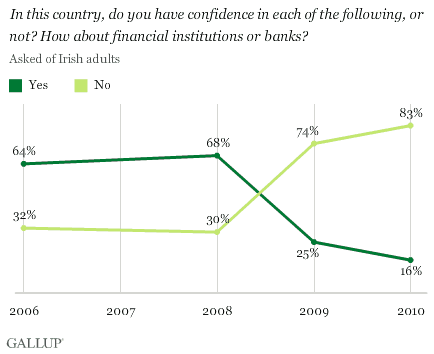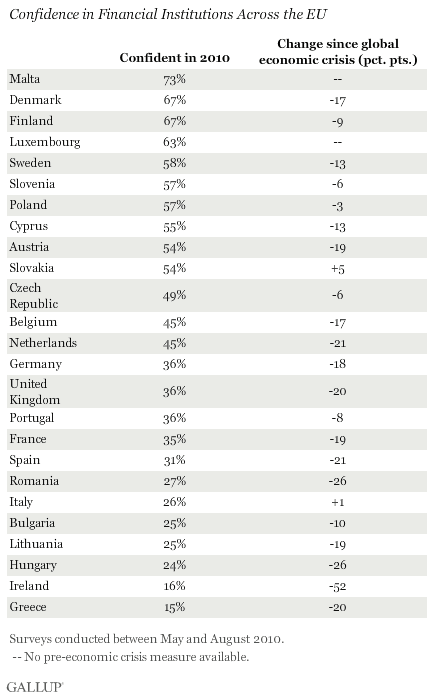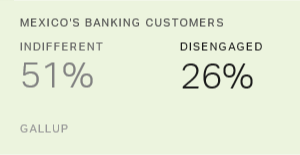WASHINGTON, D.C. -- Ahead of Irish lawmakers' approval last week of billions in international loans to shore up the country's troubled banking system, Gallup surveys showed residents' trust in their financial institutions is also in need of rescue. Irish confidence began to freefall after Ireland started bailing out its biggest banks; the 16% who expressed confidence this June is the lowest level yet.

The European Union and International Monetary Fund's multibillion-dollar rescue package aims to help Ireland cope with costs from bank bailouts that became too expensive for it to afford alone, and a budget deficit that soared to 32% of the country's GDP this year. However, the aid package is also viewed as an emergency measure to keep the debt crisis contagion from spreading across Europe, where trust in financial institutions has also dropped since the global economic crisis, but nowhere near the 52-percentage-point decline in Ireland.

The 16% of Irish residents who expressed confidence in their banks in 2010 is one of the lowest ratings in the EU, along with ratings in fellow bailout recipient Greece (15%). Confidence is relatively low as well in other EU countries that financial analysts worry could be candidates for possible euro-zone bailouts, namely Portugal (36%) -- which has had no major problems with its banks -- and Spain (31%) -- which has had some problems with its banks, but not the large ones.
Implications
With the restructuring required under the terms of the rescue package, it's too early to know the fate of Ireland's banks. It's also too early to tell whether the EU and IMF's gamble will stem the debt crisis. One thing is certain; Irish taxpayers have bailed out their banks before, and now they will have to do it again because Ireland is partly funding its own bailout. Polling of Irish voters by the Irish Times last week showed a slim majority initially backing the plan. Unless the Irish see real, visible progress, however, their confidence in the nation's financial institutions may be slow to rebound.
For complete data sets or custom research from the more than 150 countries Gallup continually surveys, please contact SocialandEconomicAnalysis@gallup.com or call 202.715.3030.
Survey Methods
Results are based on face-to-face and telephone interviews with approximately 1,000 adults in each EU member state between May and August 2010. For results based on each sample of national adults, one can say with 95% confidence that the maximum margin of sampling error ranged from a low of ±3.5 percentage points to a high of ±4.0 percentage points.